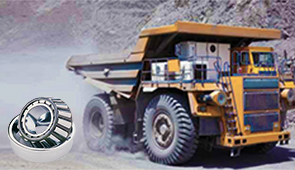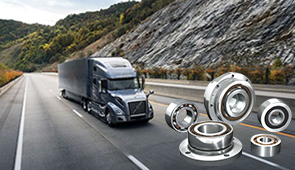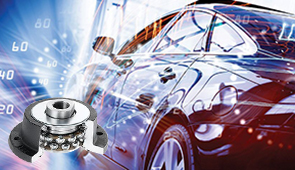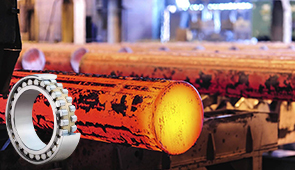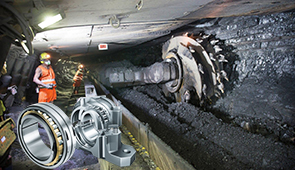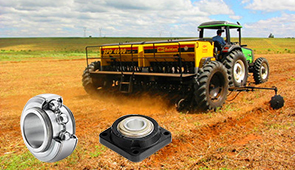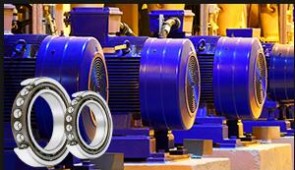What happens when a wheel bearing breaks while driving?
When a wheel bearing breaks, it can cause significant damage to your vehicle. It can also cause you to lose control of your vehicle and put you at risk for an accident.
When a wheel bearing fails, it causes the hub assembly to separate from the spindle. The result is a loss in steering ability and loss of control over your vehicle. If the vehicle is moving when this happens, you may experience a loss of acceleration as well as difficulty controlling your vehicle’s direction.
When a wheel bearing breaks, the wheel will slide off.
A wheel bearing is an important component in your vehicle’s suspension system. It allows the wheel to turn smoothly and helps to keep the wheel from wobbling.
When a wheel bearing breaks, the wheel will slide off. This can cause problems for the other parts of your car’s suspension system, such as struts and shocks. Also, if you notice a clunking sound when you turn your wheel, this could be a sign that a wheel bearing is failing.
If your car makes a clunking sound while turning, it’s a good idea to have it checked out by a mechanic right away. If you wait too long, there could be serious consequences for your car’s safety.
When the wheel bearing breaks, you will hear the screeching sound of the wheel.
When a wheel bearing breaks, the wheel will no longer rotate smoothly. The wheel will make a terrible screeching sound when you turn it. This means that the wheel bearing has failed.
A wheel bearing is a small, round component that fits between the hub of your wheel and the axle shafts. It allows your wheels to rotate freely without any resistance from friction or other forces.
The most common type of wheel bearing is called a cone-and-cup design. In this design, cones are inserted into cups that are attached to both sides of the vehicle’s axle shafts or spindles (the part of the axle that fits into the hub). When these cones rotate smoothly inside their cups, they allow the wheels to spin freely with very little drag or friction. When they fail, they often cause an audible squeaking sound from vibration caused by friction between the inner and outer race surfaces.
When a wheel bearing breaks, the car will have difficulty turning.
A wheel bearing is a mechanical device used to connect a rotating shaft or axle to a non-rotating part of the vehicle. A wheel bearing helps to allow the wheels of a car or truck to spin freely, with minimal friction.
A wheel bearing is usually made from steel, but it may also be made from other materials such as ceramic or plastic. The most common type of wheel bearing is called a ball bearing. It consists of two balls mounted on either side of a race or ring that allows them to move smoothly and freely in relation to each other.
Most cars have two to four wheel bearings (sometimes referred to as “wheel hubs”) depending on whether they have front-wheel drive or rear-wheel drive and how many wheels they have. Each hub contains two ball bearings that support the weight of the vehicle while allowing it to rotate freely.
When a car’s wheels start making noise, this may be an indication that one or more wheel bearings are failing. When this happens, it can cause problems such as vibrations on rough roads and difficulty steering at high speeds.
When the wheel bearing breaks, there is no control over the vehicle.
If the vehicle is traveling at highway speeds and the wheel bearing fails, it can result in a serious accident.
The wheel hub is attached to the axle with bearings that allow the wheel to spin freely. The wheel hub contains a set of bearings that allows it to rotate on a shaft. The bearings are packed with grease to reduce friction and wear between them and the inside of the hub.
When a wheel bearing fails, it does not always happen all at once. Instead, it may start out as a creaking noise or vibration when you turn your steering wheel hard to one side or another. You may also feel some vibration through your steering wheel when driving under high speed conditions or over rough roads. These are signs that something is wrong with your car’s wheels or suspension system and should be checked out by a mechanic as soon as possible.
Damaged wheel bearings can be a serious danger to the person driving the car.
There are a few common symptoms of a damaged wheel bearing. You may notice that the steering wheel shakes when you are driving, or you may hear a rumbling noise coming from your wheels. If you notice either of these signs, it is important to get your car checked out immediately by a professional mechanic.
Damaged wheel bearings can be a serious danger to the person driving the car. If the bearings are damaged, they can cause the tire to come off of its axle while you are driving and cause an accident. They also put extra strain on other parts of your car, which can lead to even more problems down the road.
If you notice any of these symptoms in your vehicle, it is important that you take it to a mechanic right away so they can examine it for damage.
Regular inspection and maintenance of wheel bearings is necessary.
Wheel bearings are very important in the performance of your vehicle. They help to support the weight of your wheel, so that you don’t have to worry about it falling off while you’re driving. They also allow your wheels to spin freely and smoothly.
Wheel bearings are made up of parts that include a hub, outer race, inner race, ball bearings and grease seal. The grease seal helps keep the wheel bearing lubricated and protected from dust and dirt. All of these parts work together to allow for smooth rotation of your wheel.
Driving with wheel bearings that are in need of repair is never a good idea, but it’s especially hazardous in high-speed situations. When checking your wheel bearings, it’s best to do it at high speeds on some kind of smooth road surface. If you notice any vibration or wobbling, have them replaced as soon as possible for your safety and for peace of mind.
UCTH213-40J-300 with Setscrew(inch)
CNSORDERNO: Normal-duty(2)
TOGN: UCTH213-40J-300
SDI: B-R1/8
SD: 2 1/2
UCTH212-39J-300 with Setscrew(inch)
CNSORDERNO: Normal-duty(2)
TOGN: UCTH212-39J-300
SDI: B-R1/8
SD: 2 7/16
UCTH212-38J-300 with Setscrew(inch)
CNSORDERNO: Normal-duty(2)
TOGN: UCTH212-38J-300
SDI: B-R1/8
SD: 2 3/8
UCTH212-36J-300 with Setscrew(inch)
CNSORDERNO: Normal-duty(2)
TOGN: UCTH212-36J-300
SDI: B-R1/8
SD: 2 1/4
UCTH211-35J-300 with Setscrew(inch)
CNSORDERNO: Normal-duty(2)
TOGN: UCTH211-35J-300
SDI: B-R1/8
SD: 2 3/16
UCTH211-34J-300 with Setscrew(inch)
CNSORDERNO: Normal-duty(2)
TOGN: UCTH211-34J-300
SDI: B-R1/8
SD: 2 1/8









